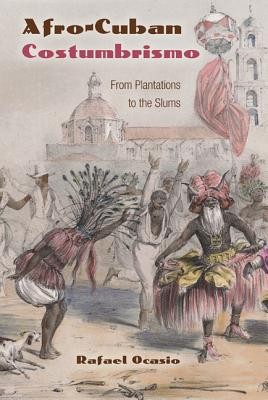
- We will send in 10–14 business days.
- Author: Rafael Ocasio
- Publisher: University Press of Florida
- ISBN-10: 0813041643
- ISBN-13: 9780813041643
- Format: 15.5 x 23.4 x 1.3 cm, hardcover
- Language: English
- SAVE -10% with code: EXTRA
Reviews
Description
"Ocasio has found a mid-point between the vision of Costumbrista writing as a source of the Afro-Cuban historical and literary experience and criticizing it for its biases and shortfalls regarding early depictions of blacks. An interesting interdisciplinary blend of literature through a sociological historical optic."--Dawn Duke, author of Literary Passion, Ideological Commitment: Toward a Legacy of Afro-Cuban and Afro-Brazilian Women Writers
"Pays detailed attention to the nuances of representation, satire, and irony, as well as the significance of silence--what cannot be said--in the portrayal of national traditions and controversial perspectives. This is a fascinating study, of eloquent scholarship, that offers a profound understanding of the development of Mulatto society in Cuba."--Julia Cuervo Hewitt, author of Voices Out of Africa in Twentieth-Century Spanish Caribbean Literature Costumbrismo, a term referring to depictions of life in Latin America during the nineteenth century, introduced some of the earliest black themes in Cuban literature. Rafael Ocasio delves into this literature to offer a new perspective on the development of Cuban identity, as influenced by black culture and religion, during the sugar cane boom. Commentaries about the slave trade and slaves' treatment were often censored in Cuban publications; nevertheless white Costumbrista writers reported on a vast catalogue of stereotypes, religious beliefs, and musical folklore, and on rich African traditions in major Cuban cities. Exploring rare and seldom-discussed nineteenth-century texts, Ocasio brings insight to the nuances of black representation in Costumbrismo while analyzing authors such as Suárez y Romero, an abolitionist who wrote from the perspective of a plantation owner. Afro-Cuban Costumbrismo expands the criteria for including texts in the Costumbrismo tradition and debunks the conventional notion that this writing reveals little about the Afro-Cuban experience. The result is a novel examination of how white writers' representations of black culture heavily inform our current understanding of nineteenth-century Afro-Cuban culture and national identity.EXTRA 10 % discount with code: EXTRA
The promotion ends in 17d.18:29:17
The discount code is valid when purchasing from 10 €. Discounts do not stack.
- Author: Rafael Ocasio
- Publisher: University Press of Florida
- ISBN-10: 0813041643
- ISBN-13: 9780813041643
- Format: 15.5 x 23.4 x 1.3 cm, hardcover
- Language: English English
"Ocasio has found a mid-point between the vision of Costumbrista writing as a source of the Afro-Cuban historical and literary experience and criticizing it for its biases and shortfalls regarding early depictions of blacks. An interesting interdisciplinary blend of literature through a sociological historical optic."--Dawn Duke, author of Literary Passion, Ideological Commitment: Toward a Legacy of Afro-Cuban and Afro-Brazilian Women Writers
"Pays detailed attention to the nuances of representation, satire, and irony, as well as the significance of silence--what cannot be said--in the portrayal of national traditions and controversial perspectives. This is a fascinating study, of eloquent scholarship, that offers a profound understanding of the development of Mulatto society in Cuba."--Julia Cuervo Hewitt, author of Voices Out of Africa in Twentieth-Century Spanish Caribbean Literature Costumbrismo, a term referring to depictions of life in Latin America during the nineteenth century, introduced some of the earliest black themes in Cuban literature. Rafael Ocasio delves into this literature to offer a new perspective on the development of Cuban identity, as influenced by black culture and religion, during the sugar cane boom. Commentaries about the slave trade and slaves' treatment were often censored in Cuban publications; nevertheless white Costumbrista writers reported on a vast catalogue of stereotypes, religious beliefs, and musical folklore, and on rich African traditions in major Cuban cities. Exploring rare and seldom-discussed nineteenth-century texts, Ocasio brings insight to the nuances of black representation in Costumbrismo while analyzing authors such as Suárez y Romero, an abolitionist who wrote from the perspective of a plantation owner. Afro-Cuban Costumbrismo expands the criteria for including texts in the Costumbrismo tradition and debunks the conventional notion that this writing reveals little about the Afro-Cuban experience. The result is a novel examination of how white writers' representations of black culture heavily inform our current understanding of nineteenth-century Afro-Cuban culture and national identity.

Reviews